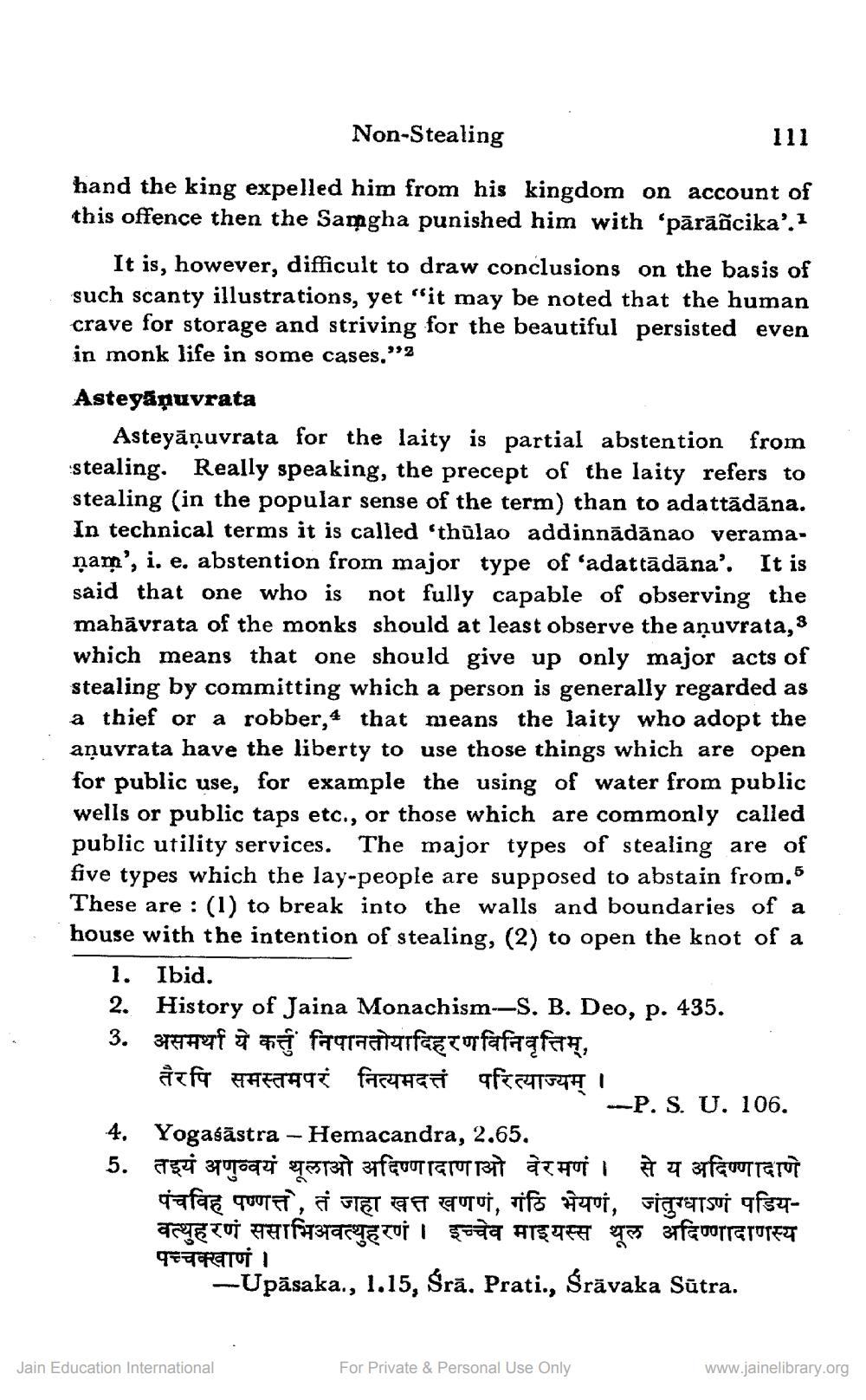________________
Non-Stealing
111
hand the king expelled him from his kingdom on account of this offence then the Samgha punished him with 'pārāăcika'.1
It is, however, difficult to draw conclusions on the basis of such scanty illustrations, yet "it may be noted that the human crave for storage and striving for the beautiful persisted even in monk life in some cases,"2 Astepäpuvrata
Asteyāņuvrata for the laity is partial abstention from stealing. Really speaking, the precept of the laity refers to stealing (in the popular sense of the term) than to adattādāna. In technical terms it is called 'thūlao addinnādānao veramaņam', i. e, abstention from major type of 'adattādāna'. It is said that one who is not fully capable of observing the mahāvrata of the monks should at least observe the aņuvrata, 8 which means that one should give up only major acts of stealing by committing which a person is generally regarded as a thief or a robber, 4 that means the laity who adopt the aņuvrata have the liberty to use those things which are open for public use, for example the using of water from public wells or public taps etc., or those which are commonly called public utility services. The major types of stealing are of five types which the lay-people are supposed to abstain from,5 These are : (1) to break into the walls and boundaries of a house with the intention of stealing, (2) to open the knot of a
1. Ibid. 2. History of Jaina Monachism-S. B. Deo, p. 435. 3. असमर्था ये कर्तुं निपानतोयादिहरण विनिवृत्तिम्, तैरपि समस्तमपरं नित्यमदत्तं परित्याज्यम् ।
-P.S. U. 106. 4. Yogaśāstra - Hemacandra, 2.65. 5. तइयं अणुव्वयं थूलाओ अदिण्णादाणाओ वेर मणं । से य अदिण्णादाणे
पंचविह पण्णत्त, तं जहा खत्त खणणं, गंठि भैयणं, जंतुग्धाऽणं पडियवत्थुहरणं ससाभिअवत्थुहरणं । इच्चेव माइयस्स थूल अदिण्णादाणस्य पच्चक्खाणं।
-Upāsaka., 1.15, Śrā. Prati., Śrāvaka Sūtra.
Jain Education International
For Private & Personal Use Only
www.jainelibrary.org




